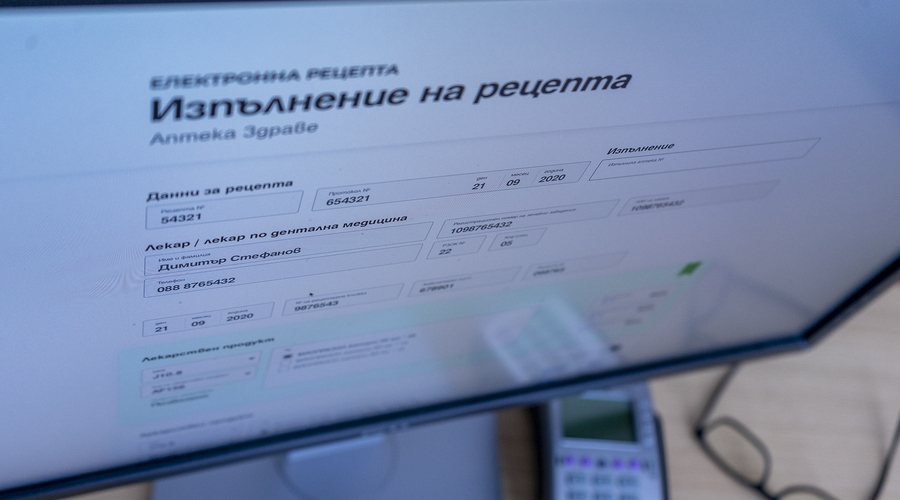Share

Over 5 million electronic prescriptions have been issued through the National Health Information System (NHIS) for a period of 6 months. Only 116 electronic prescriptions have been canceled, and an average of some 50,000 are issued per day.
"The data univocally show the high efficiency of the system and the quality of the projects that Information Services implements," the company's CEO Ivaylo Filipov said. Тhe module for issuing electronic prescriptions facilitates as much as possible citizens and doctors. It makes significantly fewer errors in medicine prescription and interpreting doctors' handwritings. It also helps health authorities in the fight against COVID-19 by reducing the number of patients queuing at GP’s practices and pharmacies by issuing e-prescriptions. The subsystem allows the creation and storage of a history of prescribed treatments and medications, which is part of the electronic health record and electronic patient file. This improves the control of the dispensing of medicines, as they are monitored in real time.
The e-prescription module is used effectively by almost 2,500 pharmacies across the country and more than 3,400 pharmacists. The total number of doctors who prescribe electronically peaked to 4598. Estimates show that in less than 6 months the NHIS subsystem has covered more medical personnel than previously envisaged in the project. Most electronic prescriptions were issued in Sofia - over 880,000, followed by Plovdiv, Varna, Stara Zagora and Burgas.
The e-referral platform, which was launched in early December 2020, is also showing impressive results. Nearly 120,000 e-referrals have been issued through the NHIS. There are about 3,000 general practitioners working with the system, with the highest activity in Sofia, Burgas, Varna and Blagoevgrad. Almost 100,000 patients have received an electronic version of the referral.
As of July 1, 2021, Information Services has launched the electronic prescription book. It completely replaces the paper prescription book for patients with chronical diseases. Thus, citizens do not have to buy a paper book, wait for the doctor for certification and present it in every pharmacy to dispense the necessary medicines. It is registered and filled in by the general practitioner in the system and pharmacies have access to the information they need about the medicines that the NHIS provides to patients with chronical disease. The system also stores data on the corrections made by the general practitioner.